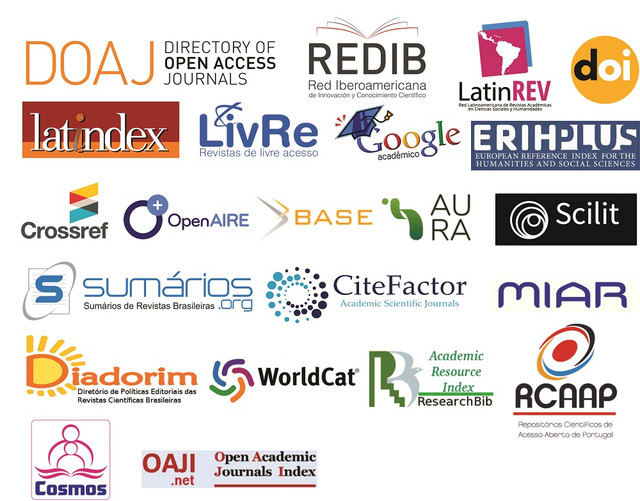EL PAPEL TRANSFORMADOR DE LA INTELIGENCIA ARTIFICIAL EN LA MEDICINA PERSONALIZADA: UNA NUEVA FRONTERA EN EL CENTRO DE ESTUDIOS BIOPHARMA
DOI:
https://doi.org/10.59087/biofarma.v4i1.38Palabras clave:
Inteligencia Artificial, Medicina Personalizada, Diagnóstico TempranoResumen
La medicina personalizada, al reconocer las variaciones individuales que impactan la salud, está siendo profundamente transformada por la integración de la inteligencia artificial (IA). Este artículo explora cómo la IA mejora los diagnósticos, tratamientos y cuidados preventivos, destacando su impacto positivo en la detección temprana de enfermedades y en la personalización de las intervenciones. Utilizando técnicas avanzadas como el aprendizaje automático y el aprendizaje profundo, la medicina personalizada se beneficia enormemente del análisis de datos, promoviendo una atención más eficiente y eficaz.
Descargas
Citas
Schork NJ. Artificial Intelligence and Personalized Medicine. Cancer Treat Res. 2019;178:265-283. https://doi.org/10.1007/978-3-030-16391-4_1 1 PMID: 31209850; PMCID: PMC7580505.
Esteva, A., Kuprel, B., Novoa, R. et al. Dermatologist-level classification of skin cancer with deep neural networks. Nature 542, 115–118 (2017). https://doi.org/10.1038/nature21056
Cohen, J. D., et al. (2018). Detection and localization of surgically resectable cancers with a multi-analyte blood test. Science, https://doi.org/10.1126/science.aar3247
Gulshan, V., et al. (2016). Development and Validation of a Deep Learning Algorithm for Detection of Diabetic Retinopathy in Retinal Fundus Photographs. JAMA, https://doi.org/10.1001/jama.2016.17216
Kourou, K., et al. (2015). Machine Learning Applications in Cancer Prognosis and Prediction. Computational and Structural Biotechnology Journal, https://doi.org/10.1016/j.csbj.2014.11.005
Kerasidou C(, Malone M, Daly A, et alMachine learning models, trusted research environments and UK health data: ensuring a safe and beneficial future for AI development in healthcareJournal of Medical Ethics 2023;49:838-843.
Obermeyer, Z., & Emanuel, E. J. (2016). Predicting the Future — Big Data, Machine Learning, and Clinical Medicine. New England Journal of Medicine, 375(13): 1216-1219. https://doi.org/10.1056/NEJMp1606181
De Fauw J, Ledsam JR, Romera-Paredes B, Nikolov S, Tomasev N, Blackwell S, Askham H, Glorot X, O'Donoghue B, Visentin D, van den Driessche G, Lakshminarayanan B, Meyer C, Mackinder F, Bouton S, Ayoub K, Chopra R, King D, Karthikesalingam A, Hughes CO, Raine R, Hughes J, Sim DA, Egan C, Tufail A, Montgomery H, Hassabis D, Rees G, Back T, Khaw PT, Suleyman M, Cornebise J, Keane PA, Ronneberger O. Clinically applicable deep learning for diagnosis and referral in retinal disease. Nat Med. 2018 Sep;24(9):1342-1350. https://doi.org/10.1038/s41591-018-0107-6 Epub 2018 Aug 13. PMID: 30104768.
Schork NJ. Artificial Intelligence and Personalized Medicine. Cancer Treat Res. 2019;178:265-283. https://doi.org/10.1007/978-3-030-16391-4_11 PMID: 31209850; PMCID: PMC7580505.
Al Kuwaiti A, Nazer K, Al-Reedy A, Al-Shehri S, Al-Muhanna A, Subbarayalu AV, Al Muhanna D, Al-Muhanna FA. A Review of the Role of Artificial Intelligence in Healthcare. J Pers Med. 2023 Jun 5;13(6):951. https://doi.org/10.3390/jpm13060951 PMID: 37373940; PMCID: PMC10301994.
Gomez-Cabello, C.A.; Borna, S.; Pressman, S.; Haider, S.A.; Haider, C.R.; Forte, A.J. Artificial-Intelligence-Based Clinical Decision Support Systems in Primary Care: A Scoping Review of Current Clinical Implementations. Eur. J. Investig. Health Psychol. Educ. 2024, 14, 685-698. https://doi.org/10.3390/ejihpe14030045
Mugerwa, Namukasa & Extension, Kiu Publication. (2024). The Impact of AI on Drug Discovery and Development. 5. 25-28.
Descargas
Publicado
Cómo citar
Número
Sección
Licencia
Derechos de autor 2024 Biofarma - Multidisciplinary Scientific Journal of Biology, Pharmacy and Health

Esta obra está bajo una licencia internacional Creative Commons Atribución 4.0.
Tiene derecho a:
*Haga clic en la imagen de la licencia de arriba para obtener más detalles.



